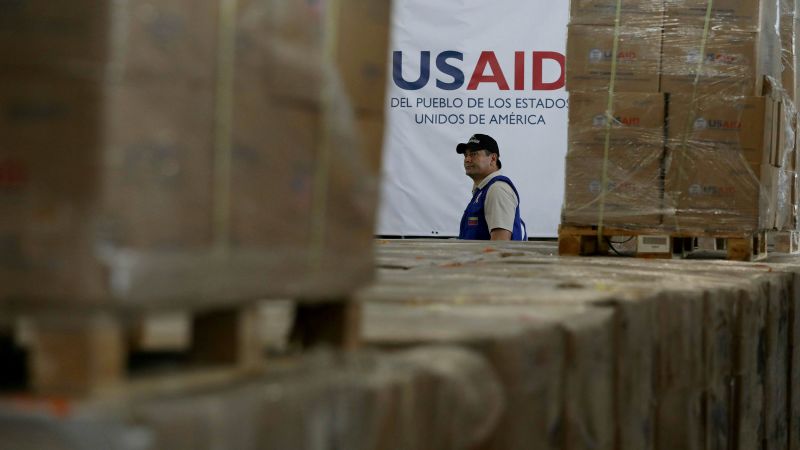(Photo by Anna Moneymaker/Getty Images)
President Donald Trump has taken swift and significant actions against Diversity, Equity, and Inclusion (DEI) programs since returning to the White House in January 2025. On his first day in office, January 20, Trump signed an Executive Order titled “Ending Radical And Wasteful Government DEI Programs And Preferencing”. This order directed all federal DEI staff to be placed on paid leave and eventually laid off.
Trump has described DEI programs as “dangerous, demeaning, and immoral,” asserting that they are inherently discriminatory. He vowed to “create a society that is blind to color and based on merit”. The executive order specifically targeted practices associated with DEI, positioning them as contrary to US law.
Rolling Back DEI Initiatives and Starting MEI Programs
President Trump believes in a new approach to hiring and workplace matters. This emerging movement advocates for “Merit, Excellence, and Intelligence (MEI),” which emphasizes selecting candidates based solely on their qualifications, abilities and intelligence.
Proponents argue that MEI offers a more equitable and effective method for building high-performing teams, moving away from demographic considerations to focus exclusively on individual merit.
MEI serves as a framework for making hiring decisions in the workplace. The aim is to choose job applicants based primarily on their achievements, skills, and contributions as opposed to other factors such as identity or demographic characteristics. MEI highlights the pursuit of the highest standards of performance in a person’s occupation. A value is placed on tangible traits like problem-solving skills, inherent talent, and a high level of intelligence.
A number of companies have recently rolled back their DEI programs in favor of MEI initiatives, including Meta, McDonald’s, Walmart, Ford, Harley-Davidson, John Deere, Tractor Supply Company, Amazon, and Boeing.
These companies have either announced changes or have taken steps to eliminate or reframe their DEI efforts, often in response to conservative criticism and a shifting legal landscape.
President Trump has taken a strong stance against DEI programs, issuing executive orders to dismantle federal DEI initiatives, claiming they promote an “identity-based spoils system” that he argues diminishes merit-based evaluations.
He has directed federal agencies to end these programs, placed DEI staff on administrative leave, and encouraged a shift towards what he and his administration see as a colorblind, merit-based approach in both public and private sectors, which aligns with the MEI philosophy gaining traction among some corporate leaders.
Many Companies Still Have DEI Programs
A number of major corporations continue to support DEI policies despite some trends towards scaling back. JPMorgan CEO Jamie Dimon stands by his bank’s diversity, equity, and inclusion efforts, despite challenges from conservative activist shareholders and the Trump administration’s recent crackdown on DEI initiatives.
Costco aggressively defended its DEI programs. MSNBC’s Rev. Al Sharpton, the civil rights activist, led a special event at Costco Wholesale in Union, New Jersey to support the company’s commitment to DEI in the workplace. The event was dubbed a “buy-cott for DEI”.
Apple urged shareholders to reject proposals aimed at restricting these initiatives. Delta Airlines has publicly committed to DEI, highlighting its importance to their business operations. Cisco’s CEO has articulated the business value of diversity, defending their DEI initiatives. Microsoft continues to publish DEI reports, showing ongoing commitment. American Airlines and Goldman Sachs are also standing by their DEI policies.
JPMorgan Chase has adjusted its approach but remains committed to DEI, aligning it with business success. Disney and NBC Universal are continuing to support DEI. Other companies such as Kroger, Ulta, Macy’s, Old Navy, Nordstrom, and TJ Maxx have been listed as maintaining their commitment to DEI.
How This Will Play Out
The evolution of the MEI versus DEI debate will unfold through legal, cultural, economic, and political factors. It’s likely that the degradation of DEI will polarize a significant sector of the workplace. Some companies will either double down on DEI, arguing that it’s essential for social justice, or embrace MEI, advocating for a more objective merit-based career system.
It’s possible that major corporations will accept integrating a combination of both sides. Under Trump’s administration and the actions he’s been taking so far, it’s reasonable to conclude that there will be pressure placed on companies to reward MEI to emphasize individual accomplishments. Hirings and promotions will tilt towards skills, talent, relevant experience and other factors as opposed to filling out quotas.


